Oral Exam
Oral Exam
New patients receive a comprehensive examination which includes a screening for oral cancer, gum and bone disease, blood pressure, and systemic disorders. A routine oral exam is performed on established patients to determine any changes in dental and health status since the previous visit.
Your gum tissue is measured with a fine instrument ruler to calibrate in millimeters pocket depth between the tooth and the connective gum tissue around the tooth. Pocket depths more than 4 millimeters could indicate disease and infection. The deeper the pocket, the greater the extent plaque bacteria collects and infection in gum disease develop.
X-rays are taken as needed.
Tooth scaling and root planing occur as needed.
Routine cleanings also include a professional polishing (Prophy) that removes only the soft sticky plaque that is above the gum line.
Intra-Oral Camera
We provide our patients with an intra-oral video examination. This allows both the doctor and the patient to see the condition of the mouth at the same time, then discuss treatment options.
Diagnodent
The Diagnodent is the latest in cavity detection. The Diagnodent can detect even the smallest cavities that even the trained eye of your dentist can miss, even while using magnification loupes!
The earlier the cavity can be detected, the sooner it can be removed and chances are, there will be minor, if any, pain involved.
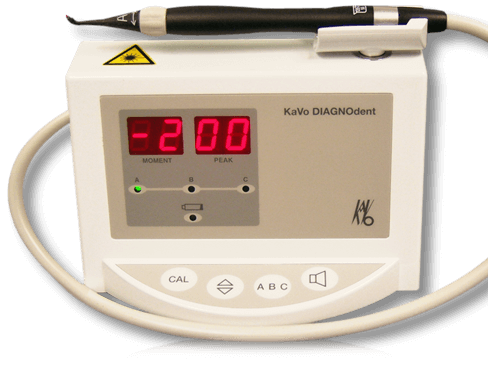
VELscope
The VELscope is an FDA approved device that aides in the early detection of oral cancer. This is a pain-free, non-invasive procedure where a safe blue light is emitted into the patient's mouth. The dentist is able to immediately view different fluorescence responses to help differentiate between normal and abnormal tissue.
Oral cancer when detected early has a greater chance of successful treatment. Most people are not aware of this disease until it has presented itself as a problem and by then it has progressed extensively.
We recommend yearly screenings for adults, especially denture wearers and smokers.
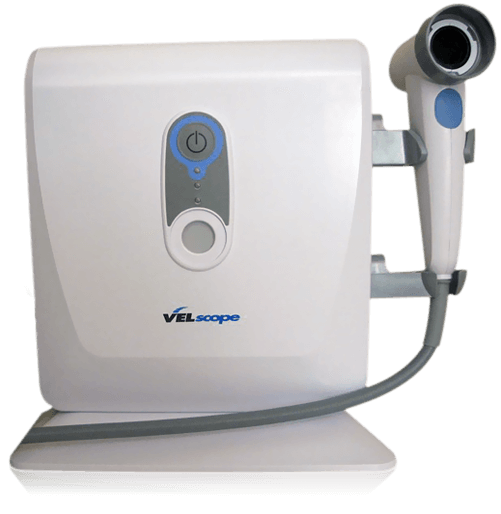
Digital X-Rays
Our office uses the latest in digital x-ray technology. Digital x-rays offer a detailed image of your entire mouth and also offer up to 80% less radiation than traditional film x-rays.
X-rays play an invaluable role in the diagnosis of dental problems, as well as provide a clear picture for a dentist to accurately diagnose and provide the necessary treatment.
We place a small sensor in your mouth. The sensor is connected to a computer by a thin wire. Next, an x-ray beam is sent through your teeth and into the sensor, which records the image of your teeth and sends it to the computer. The sensor can then be repositioned to image other sections of your teeth.
The digital dental x-ray system is more sensitive than dental x-ray film systems, so your exposure to x-rays is cut by as much as 90 percent. The large and color-enhanced images let you see what your dentist sees, so it's easier for you to understand how your dentist will treat your teeth. Your dental checkups take less time, and it's fun to watch this system work! Most patients are amazed.
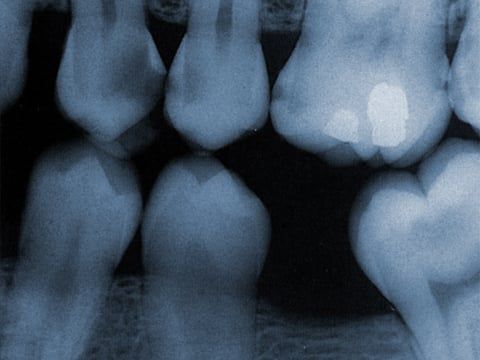
Digital Panoramic X-Rays
Panoramic x-rays offer patients a complete detailed image of the entire mouth including the teeth, jaw (upper and lower), sinuses, and TMJ.
It provides a complete picture on how everything looks and relates to each other.
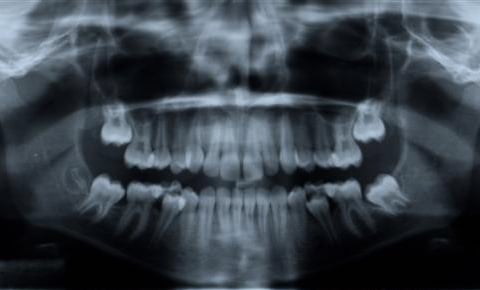
i-CAT
The i-CAT 3-D dental scan system is well in advance of any x-ray system. The i-CAT provides 3-D images of the teeth, jaw, sinuses and skull structure in 1/20th of a second with significantly less radiation than a medical CT scan.
The 3-D scans from the i-CAT provide anatomically accurate data and surgical predictability for:
- Implant placement
- Impactions
- TMJ analysis
- Airway assessments
- Panoramics
- Cephalometrics
- Orthodontics
- Orthognathic surgery
Removing Plaque
Plaque is essentially the start of gum disease problems. Plaque is a build-up from bacteria in the mouth and particles from the foods you eat every day.
Once sugars are introduced to plaque, it turns into a tooth eating acid that sits just above the gum line. If regular oral care isn't standard, the acid will start eating at the teeth producing cavities and the plaque can cause gum disease.
Plaque that is allowed to sit for a prolonged period of time can cause cavities, gingivitis, and other problems in your mouth. If it's left longer than that, serious dental procedures may be required to restore your decaying smile. Plaque is usually not removed with standard brushing and flossing and usually requires coming in to see us for proper and thorough removal.
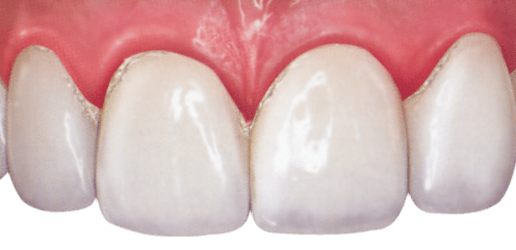
What is Tooth Scaling?
Tartar is plaque that has had time to harden and is that white (sometimes yellow) substance found at the base of the tooth just above the gumline. Tartar is usually not removed with standard brushing and flossing and usually requires coming in to see us for proper and thorough removal.
Tooth scaling is a service that involves using a tool that is specifically designed to break-apart and remove tartar. We gently run the tooth scaling tool along the front and back surfaces of teeth that have any signs of tartar which effectively cleans the gumline and smooths the tooth enamel. Every time you come in for a dental checkup, tooth scaling is performed to help prevent future dental problems such as cavities and gum disease.
What's Involved With A Root Planing Procedure?
Each person's oral health is unique and the stage and current condition of the teeth and gums will dictate how involved a deep cleaning is as well as how long it takes to heal. Usually a deep cleaning is done one-half of the mouth at a time and healing takes about a day or two.
During a deep cleaning we will numb the areas of your gums where we are working, which will keep you from feeling any discomfort during the procedure. Using a special tool, we will remove any tartar build up that is found on tooth roots below the gumline and we ensure the tooth root gets a smooth finish to allow the gum tissues to start re-attaching itself. Our office uses a special ultrasonic tool that will ensure the quickest and most comfortable deep cleaning as possible and is something some other dental offices do not offer. After your root planing procedure, you may be recommended to take a medication to help control soreness from the procedure, keep away infections and to promote healing.
Tooth Polishing
Rough tooth surfaces are exactly what plaque loves to grab hold of and start hardening into harmful tartar. After your teeth have been thoroughly cleaned, we will use a special tooth polishing tool and a flavored polishing compound to polish your pearly whites. Tooth polishing effectively smooths tooth surfaces making it difficult for plaque to grab on to. After tooth polishing, you will be able to tell a difference with how smooth your teeth feel, as well as visibly see that they're looking their best.
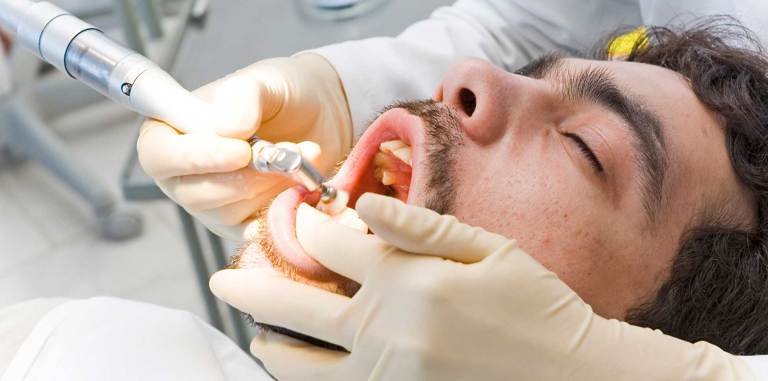
Protect Your Teeth With Fluoride
For children between the ages of 6 and 16, we will generally incorporate a fluoride treatment to help strengthen tooth enamel that can prevent cavities. Fluoride treatments are also beneficial for adults.
Request an appointment and talk to us more about fluoride treatments and see if your teeth can benefit from fluoride.
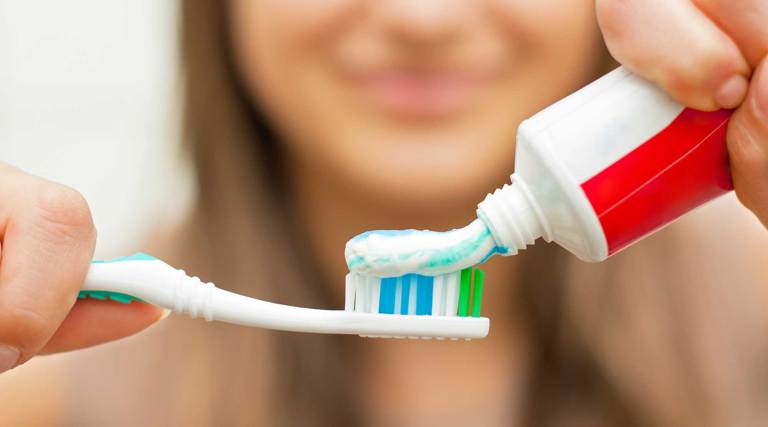
Schedule An Appointment
Life Smiles Dental Care would love to meet you and your family and provide you with the dental care you need and give you all smiles you deserve!



